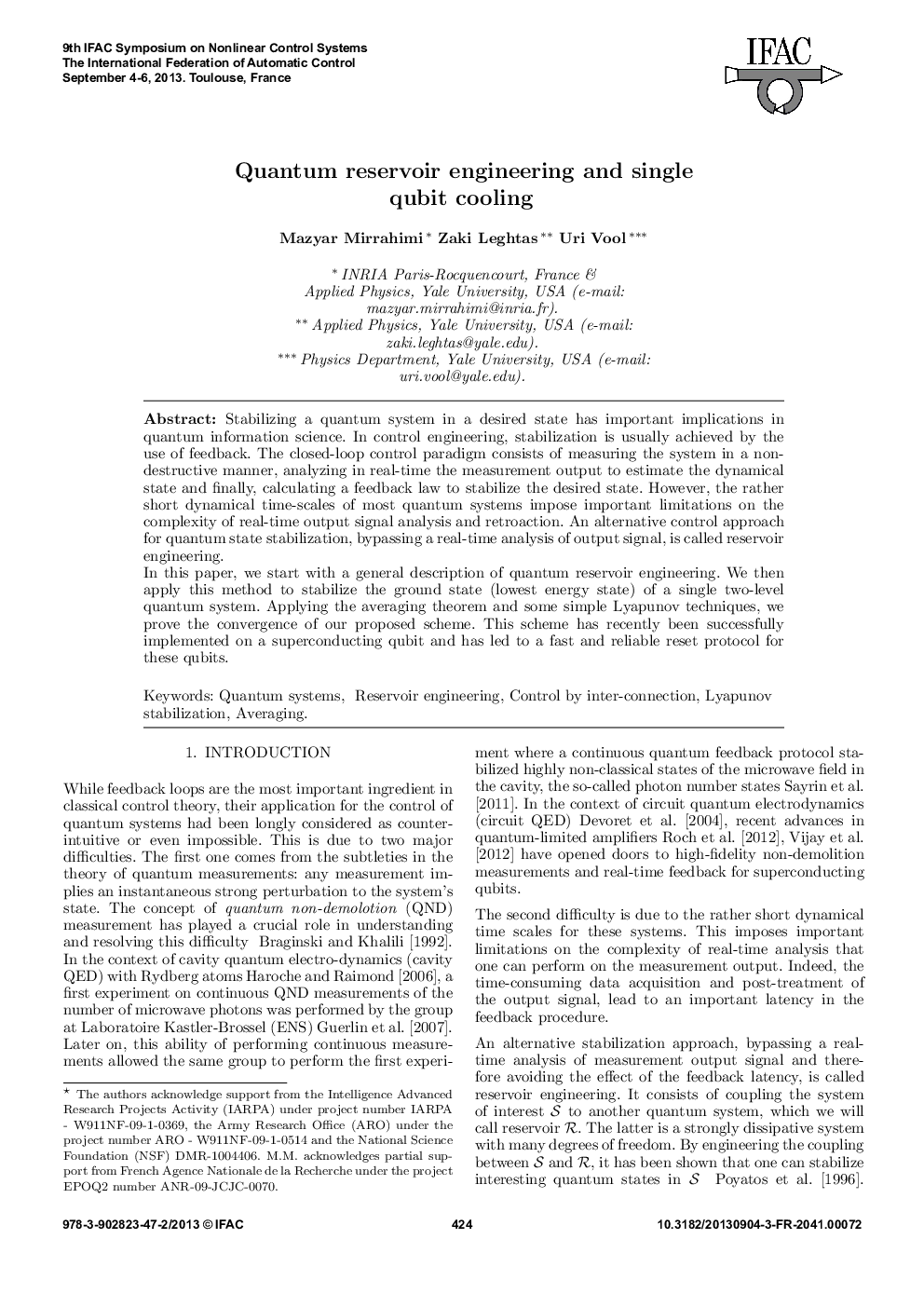| کد مقاله | کد نشریه | سال انتشار | مقاله انگلیسی | نسخه تمام متن |
|---|---|---|---|---|
| 714495 | 892187 | 2013 | 6 صفحه PDF | دانلود رایگان |

Stabilizing a quantum system in a desired state has important implications in quantum information science. In control engineering, stabilization is usually achieved by the use of feedback. The closed-loop control paradigm consists of measuring the system in a non-destructive manner, analyzing in real-time the measurement output to estimate the dynamical state and finally, calculating a feedback law to stabilize the desired state. However, the rather short dynamical time-scales of most quantum systems impose important limitations on the complexity of real-time output signal analysis and retroaction. An alternative control approach for quantum state stabilization, bypassing a real-time analysis of output signal, is called reservoir engineering.In this paper, we start with a general description of quantum reservoir engineering. We then apply this method to stabilize the ground state (lowest energy state) of a single two-level quantum system. Applying the averaging theorem and some simple Lyapunov techniques, we prove the convergence of our proposed scheme. This scheme has recently been successfully implemented on a superconducting qubit and has led to a fast and reliable reset protocol for these qubits.
Journal: IFAC Proceedings Volumes - Volume 46, Issue 23, 2013, Pages 424-429